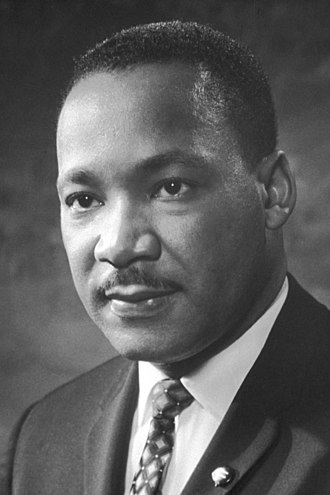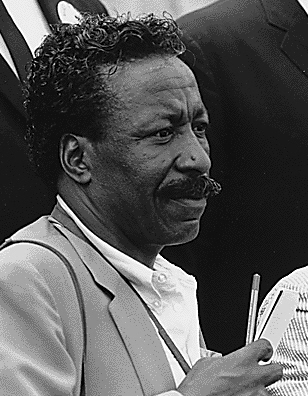



In “My Mustache, Myself”, New York Times Critic Wesley Morris explores the ways his COVID-19 mustache prompted him to reflection Black masculinity. Morris compares his mustache to others worn by famous Black men, including fictional characters like Carlton Banks, of Fresh Prince of Bel-Air fame, and key Civil Rights leaders, like Martin Luther King, Jr. Morris explores the ways that his mustache connects him to a rich legacy of Black men and details how this legacy has influenced his life from boyhood, to college, and beyond. Throughout the essay, Morris demonstrates the ways that Black people, and men and boys in particular, navigate acts of bias or racism.

Wesley Morris is a critic at large for The New York Times. Previous to The Times, Mr. Morris worked at Grantland as a staff writer and the Sportstorialist columnist and cohost of “Do You Like Prince Movies?” He was a film critic at The Boston Globe from 2002 to 2013, and before that at The San Francisco Chronicle and The San Francisco Examiner.
Morris was awarded the Pulitzer Prize for his criticism at the Boston Globe in 2012 and, while at Grantland, was a National Magazine Award finalist for Columns and Commentary in 2015.
He was born in Philadelphia and received a bachelor’s degree from Yale University for film studies.
Some of his spare time is spent making pie crusts, complaining about real estate development and teaching writing to high school students in Bushwick.
1. What are some ways you have connected with your past or heritage?
2. Which of the men Morris offers as examples stand out the most to you? Why or how?
3. Morris describes ways that his liberal arts college wasn’t very friendly for people of color. What are some ways we can intentionally work toward making SU a more welcoming, inclusive place?
Research one of the men Morris names to find out more about their contributions to American history and/or culture. You can start with a name that’s familiar and expand your knowledge of that person, or start with someone you’ve never heard of.
I have almost always had a mustache. In my life I’ve learned that you can’t trust someone who does not have a mustache. One of the few times where I did not have a mustache was when I was working at my first job at a restaurant in my hometown, which did not allow facial hair. I did not have a father or father-like figure to help me with the process of removing my mustache. So, I shaved with a disposal razor with no shaving cream... NO shaving cream. For many years afterwards, I avoided any shaving situations and visited a barber for simple tasks that I now accomplish effortlessly with a pair of clippers or a good quality razor.
Being adaptable means adjusting to new information. You adapt when you decide to take a different route. You adapt when your interests change. You adapt when you fail a class for the first time and choose to do better next time. Morris felt this concept of adaptability when he compared himself to the many positive images of Black men in history, especially the complex character, Carlton Banks, whose blackness was frequently questioned during the run of The Fresh Prince of Bel-Air. The men listed in this piece are famous for altering the course of U.S. history for Black Americans and Americans in general. As you read through, consider whether or not the faces are familiar to you. If they aren’t familiar, why aren’t they? If they are, what do they mean to you? Your ability to recognize these faces is indicative of the history you’ve received and where you should continue your education here at Susquehanna. As you read this essay, try to see these faces as part of your history and not just someone else’s.

Martin Luther King Jr. (born Michael King Jr.; January 15, 1929 – April 4, 1968) was an African American Baptist minister and activist who became the most visible spokesperson and leader in the American civil rights movement from 1955 until his assassination in 1968. King advanced civil rights through nonviolence and civil disobedience, inspired by his Christian beliefs and the nonviolent activism of Mahatma Gandhi.

Gordon Roger Alexander Buchanan Parks (November 30, 1912 – March 7, 2006) was an American photographer, musician, writer and film director, who became prominent in U.S. documentary photojournalism in the 1940s through 1970s—particularly in issues of civil rights, poverty and African-Americans—and in glamour photography.

Denzel Hayes Washington Jr. (born December 28, 1954) is an American actor, director, and producer. He has been described as an actor who reconfigured "the concept of classic movie stardom," mostly associating with characters defined by their grace, dignity, humanity, and inner strength.[1] He has received seventeen NAACP Image Awards, three Golden Globe Awards, one Tony Award,[2] and two Academy Awards from nine nominations: Best Supporting Actor for playing Union Army soldier Private Trip in the historical drama film Glory (1989), and Best Actor for his role as corrupt detective Alonzo Harris in the crime thriller Training Day (2001).[3] In 2020, The New York Times ranked him as the greatest actor of the twenty-first century.

Carlton Banks is a fictional character portrayed by Alfonso Ribeiro on the NBC television sitcom The Fresh Prince of Bel-Air from September 1990 to May 1996, the preppy and politically conservative cousin, main foil, and eventual close friend to Will Smith's cool and street-smart lead character.